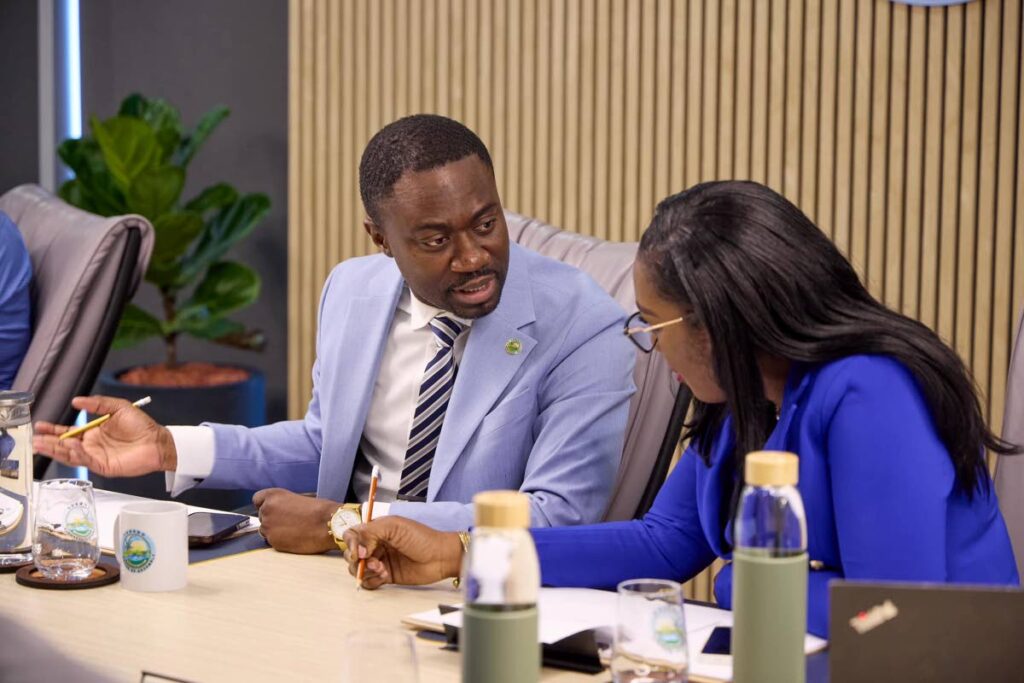THA limits overseas travel, tightens belt to make budget work

THE Tobago House of Assembly (THA) will tighten its belt for the next fiscal year as it seeks to maximise its developmental potential with its budgetary allocation.
On September 30, Finance Minister Colm Imbert allocated $2.599 billion to the THA, well short of the $3.956 billion it had requested.
At an Executive Council post-budget retreat in Castara, which began on November 11, THA secretaries, administrators and technical officers met to assess budgetary allocations and re-prioritise THA projects to maximise its resources.
Petal-Ann Roberts, Secretary of Finance, Trade and the Economy, said the THA will be restricting its spending to 2023 levels and cutting expenditure such as overseas travel.
She made the statement at the post-executive retreat update at Castara Fishing Depot on November 12.
She said the THA requested $3.9 billion – $2.8 billion for recurrent expenditure, $1 billion for development programmes, $91.9 million for the Unemployment Relief Programme (URP) and $43 million for the Community-Based Environmental Protection and Enhancement Programme (CEPEP).
It received $2.608 billion – $2.375 billion for recurrent expenditure, $205 million for development programmes, $18 million for URP and $9.2 for CEPEP, which equated to 20 per cent of the funding for development, URP and CEPEP, and 85 per cent for recurrent expenditure.
Roberts said the THA spent $ 2.083 billion in 2023 in recurrent expenditures and would use that as the limit across the assembly. The restricted spending would save the THA about $292 million.
“Each division will have a different percentage cut, because it’s based on their 2023 levels. So for instance, I think the Division of Infrastructure is only about a nine per cent cut.”
Cuts would affect minor equipment, official overseas travel, promotion of activities/events, materials and supplies and office stationery and supplies. She said the THA would also try to ensure its procurement arrangements would benefit it to the maximum on economies of scale and in negotiating prices with service providers.
“It really means we have to sacrifice some things on the recurrent side. And I want Tobago to understand this sacrifice would mean that we cannot do certain things on the recurrent side in order to bolster and accelerate Tobago’s development programme and unlock our development potential.”
Roberts said there was approximately $100-$120 million in the THA’s unspent balance account. URP and CEPEP would be supplemented by $60 million and $23 million respectively out of that balance.
The THA would also prioritise spending on 44 major projects, including the Scarborough beautification project on Calypso Rose Boulevard; beginning a Youth Residential Learning and Training programme; upgrading the island’s ambulance fleet from two to 12; developing 37 parcels of land in Castara to be distributed in the Affordable Housing Project; and the Tobago autonomy project to educate people and prepare them for that transition.
“The criteria we used for the past two days are cost effectiveness: we looked at the economic landscape of Tobago, the social needs that Tobago currently faces, we looked at the feasibility of these projects in terms of the timeframe and the ability and possibility of these projects being implemented, and the sustainable development needs.”
It also planned to increase the skill levels of the workforce in Tobago and use that workforce on some projects, reducing the need to spend on external contractors.
In addition, Roberts said she had two meetings with Finance Minister Colm Imbert on the Caribbean Catastrophe Risk Insurance Facility (CCRIF) insurance fund after damage from Hurricane Beryl, as well as submissions to the International Oil Pollution Compensation Fund for the oil spill in February.
She said Tobago was entitled to a payout of US$372,000 from CCRIF, and she wrote to Imbert after their second meeting in September, but got no response.
She assured the public she would pursue both, as the THA’s contingency fund had less than $1 million after making the first payments to contractors used for the oil-spill cleanup.
“God forbid if something happens to us in Tobago and Trinidad has refused to provide any kind of response, and that’s the kind of posture we had for the oil spill at short notice. In cases of emergency, as Secretary of Finance I really don’t know what we will do.”

Comments
"THA limits overseas travel, tightens belt to make budget work"